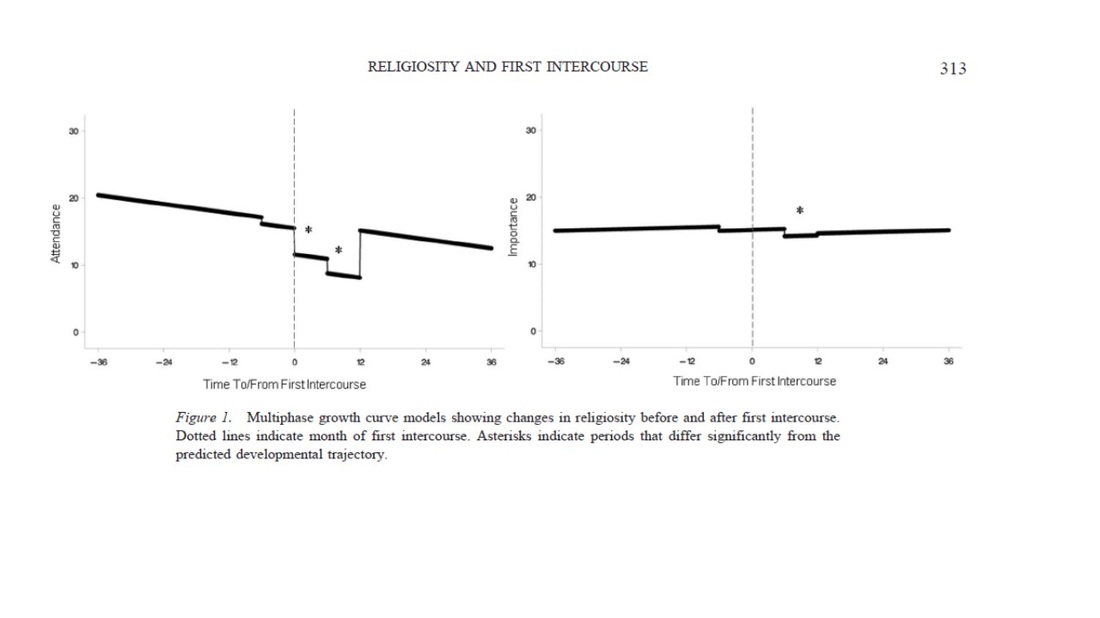The post Transition to sex predicts changes in religiosity first appeared on Eva Lefkowitz's blog on May 26, 2015.
|
Relatively extensive evidence has established that more religious adolescents tend to delay first sexual intercourse. In a paper that Sara Vasilenko and I published last year, we wanted to examine whether this association, usually assumed to be in this direction (from religiosity to sexual behavior), was actually bidirectional. We used the 100 participants from the University Life Study who transitioned to first intercourse between their first and seven semester in college. Our findings demonstrated that 12 months after transitioning to first intercourse, students attended religious services less frequently and viewed religion as less important than they had prior to first intercourse. Eventually, religiosity returned to levels that would be predicted by developmental trends prior to intercourse. These findings suggest bidirectionality -- religiosity leads to delayed first intercourse (based on prior work). But transitioning to intercourse may lead to decreases in religious behaviors and attitudes. Why? It may be a result of cognitive dissonance reduction (Festinger, 1962), with newly sexually active students perhaps decreasing their religious behaviors and beliefs as a way to deal with engaging in prohibited behaviors.
The post Transition to sex predicts changes in religiosity first appeared on Eva Lefkowitz's blog on May 26, 2015.
0 Comments
Your comment will be posted after it is approved.
Leave a Reply. |
Eva S. Lefkowitz
I write about professional development issues (in HDFS and other areas), and occasionally sexuality research or other work-related topics. Looking for a fellowship?
List of HDFS relevant fellowships, scholarships, and grants Looking for an internship?
List of HDFS-relevant internships Looking for a job?
List of places to search for HDFS-relevant jobs Categories
All
Blogs I Read
|


 RSS Feed
RSS Feed
